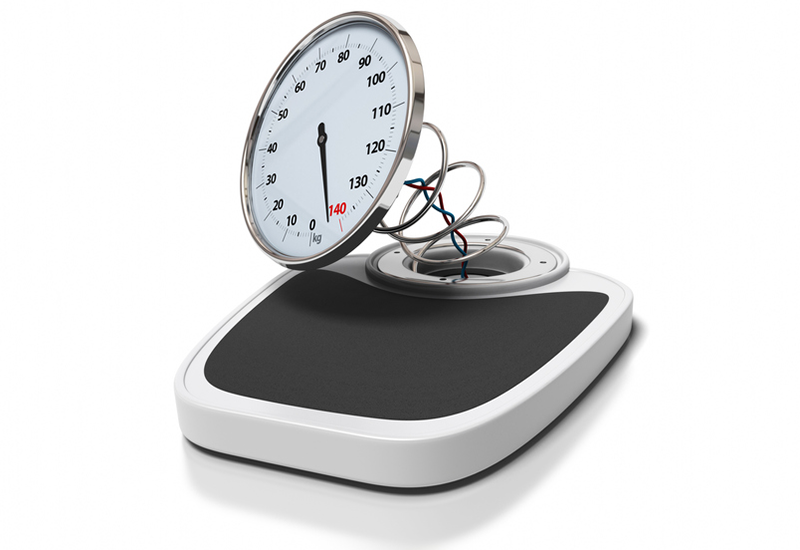Health: More than a Number on the Scale

Have you ever been told that for your particular height, you should weigh “x” number of pounds? How about those ancient spreadsheets offering a weight range for your height? Do you ever feel good about yourself after these interactions? Of course not!
Here’s the thing—no one can tell you what the right weight is for you, except you. And furthermore, one number can’t possibly tell the complete story of what’s going on beneath your skin. That number can be quite deceiving too! I’ve known plenty of people who, despite being at a “healthy” weight, had shockingly unhealthy blood panel results.
First let me say that if I had my way, body weight as a measure wouldn’t exist. More often than not, it’s used as a yard stick for self-worth and happiness.
“Oh no, I’m up three pounds! It’s going to be a miserable day.”
“Woohoo, I lost three pounds! It’s going to be a fantastic day!”
I realize that the idea of body weight is still very much alive and thrown in our faces. Think social media, television, magazines, and family, friends, and coworkers. It refuses to die!
But guess what? You don’t have to get sucked into it. It’s your choice.
If you remember nothing else from this post, remember this:
Never let the number on the scale determine who you are or what you’re capable of becoming.
Your Set Point Weight
With all of this being said (I’m now stepping off of my soapbox), how can you tell when your body has achieved a healthy, sustainable weight? One theory is that it communicates by way of something called your “set point” weight.
According to Dr. Stephen Woods, PhD, Professor of Psychiatry and Behavioral Neuroscience at the University of Cincinnati:
“The amount of fat in the body is a major component of body weight. Although it may go up and down from time to time, the amount of body fat (and hence body weight) most people carry is relatively stable and appears to be controlled or maintained at a level that is sometimes called a “set point.” The best evidence for this is that when people go on a diet and voluntarily eat less food, most are able to lose at least some weight. However, throughout time, as attention to maintaining the lost weight decreases, body weight creeps back up, generally to about the same level as occurred before the dieting began.”
In my experience, your set point weight is the weight your body naturally settles at when you stop dieting and instead, consistently practice the following four habits:
- Eat real food: a diet rich in produce (think greens, veggies, and fruit) and low in processed foods and simple sugars. The Club Fx Top 100 Foods list is a great place to start!
- Engage in regular, enjoyable physical activity most days of the week.
- Get between 7-9 hours of sleep each night.
- Leave a little room for your all-time favorite foods.
Proud confession: Not a month goes by where I don’t treat myself to a Mitchell’s ice cream sundae! I honor and practice the first three habits on a daily basis, which affords me the opportunity to have a little fun! It truly is the cherry on top of a well-balanced lifestyle.
Pay Attention to These Eight Signs (Instead of the Number)
If you want to get real about your health, take your eyes off the scale and focus on how you feel instead. The following benefits become loud and clear once you begin practicing the four habits mentioned above:
- Healthy and sustained energy levels.
- Sound sleep.
- A healthy appetite, satisfied by nourishing food. Looking for a nourishing breakfast? Try my latest addiction: Superfood Flax Meal. A hot cereal with upwards of 20 grams of fiber per bowl, this breakfast will fill you with an abundance of energy, vitamins, and minerals!
- Only minor fluctuations in your weight by a few pounds.
- Clothes that fit more comfortably.
- Healthy blood sugar, blood pressure, and cholesterol levels.
- A body that feels good and is free of major aches and pains.
- A body that enables you to accomplish your dreams.
If your goal is to shed weight that’s not serving you, why not let your clothes be your measuring device? Not the clothes you want to fit into, but the clothes you are wearing right now. The jeans that fit comfortably (or maybe a bit snug)—not the pair you have to lie on your bed to zip! You can’t argue with an old pair of pants that now require a belt!
Keep in mind, if you’re currently enjoying all eight of these benefits as a result of practicing the above four habits, you may very well be at a healthy weight…even if that number is more than you want it to be. Yet another good reason to divorce your bathroom scale!
So, what is the perfect, healthy weight for you? The one that makes you feel good emotionally, physically, and spiritually…regardless of the number.
Food for Thought …
When you invest in Personalized Nutrition Coaching with one of Heinen’s Registered Dietitians, they will work to identify your health goals and then develop a lifestyle plan to help you reach those goals. What’s more, they will never ask you to step foot on a scale!
